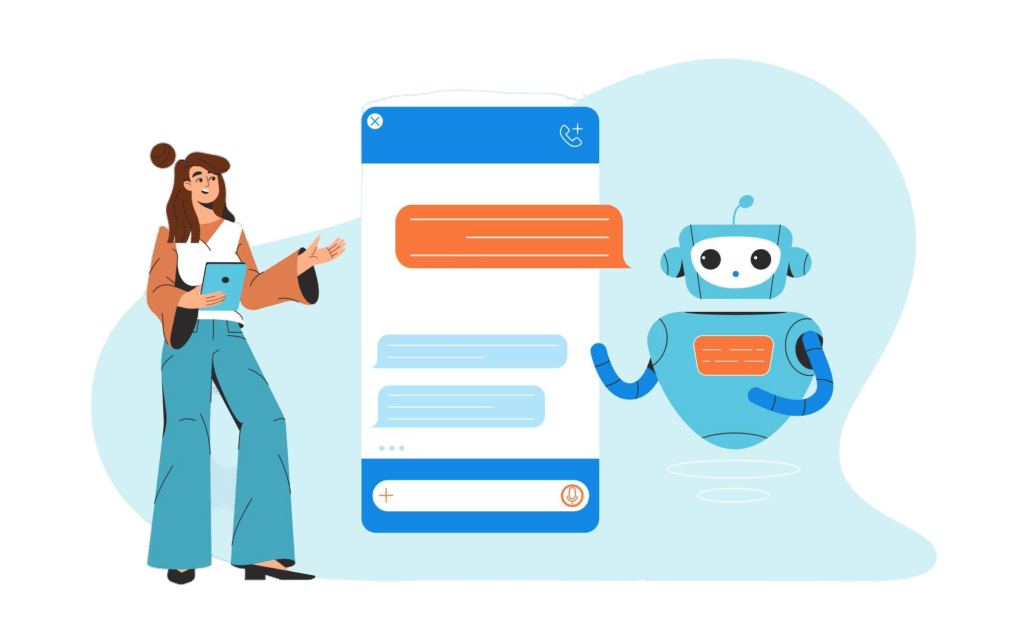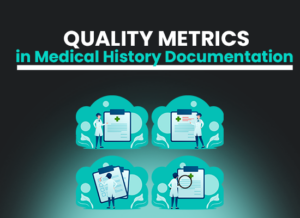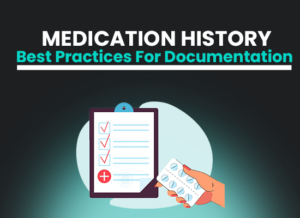Why HIPAA Compliance Matters: Protecting Patient Privacy
- November 11, 2024

Table of Contents
In today’s digital healthcare environment, protecting patient information is essential. This requires healthcare providers, insurers, and related entities to follow strict guidelines on data protection, including regular staff training and strict access controls.
Healthcare providers, insurers, and other entities handling patient data must follow strict protocols, conduct regular staff training, and control data access to prevent unauthorized use or disclosure. Noncompliance with HIPAA can lead to serious penalties, including fines and legal consequences, affecting both trust and reputation.
What Is HIPAA Compliance?
HIPAA compliance means following specific rules and regulations set by the Health Insurance Portability and Accountability Act (HIPAA) to protect patient information. These rules govern how health information is handled, whether stored digitally or in paper records, and apply to anyone who interacts with PHI, including healthcare providers, insurers, and business associates.
- Privacy Rule:
This rule limits who can view or share a patient’s health information, ensuring privacy is maintained unless the patient gives explicit permission.
- Security Rule:
Focused on electronic health records, this rule mandates protections like encryption and access controls to safeguard digital patient data.
- Breach Notification Rule:
This rule requires organizations to follow a clear process if PHI is exposed, including informing the affected individuals and, in severe HIPAA violation cases, reporting to federal authorities.
- Covered Entities and Business Associates:
HIPAA applies not only to doctors and hospitals but also to business partners, such as billing companies or IT providers, who handle patient data on behalf of healthcare organizations.
A clinic that outsources its billing to a third-party company must verify that the company follows guidelines since they handle sensitive patient data. This ensures that patient privacy is protected at all stages of care. The OCR imposed $13.5 million in HIPAA fines in 2020, with the largest single fine being $6.85 million.
Try it - Love it - Buy it
Avail Our Free Trial Now!

Introduction to HIPAA Compliance:
HIPAA, or the Health Insurance Portability and Accountability Act, is a U.S. law established in 1996 to set standards for protecting sensitive health information. This law applies to a broad range of entities, including healthcare providers, insurance companies, and any organization involved in handling patient data.
Failing to comply with HIPAA guidelines can result in significant penalties, including fines and potential legal issues. By adhering to HIPAA standards, healthcare entities demonstrate their commitment to patient privacy and data protection, fostering trust in the healthcare system.
What You Need to Know:
HIPAA compliance requires organizations, particularly in healthcare, to follow strict guidelines to protect personal health information (PHI). These steps help secure patient data from unauthorized access, breaches, and misuse, ensuring that health information remains private and protected. Compliance is not optional; organizations must actively implement and monitor procedures to stay in line with HIPAA rules.
- Training and Education:
Staff must receive regular training on data handling, confidentiality, and HIPAA policies. Understanding these rules helps prevent mistakes that could lead to data breaches.
- Data Access Control:
Organizations must create protocols that limit access to PHI, ensuring only authorized personnel can view or use sensitive information. Access is based on job roles, meaning only those who need data for their work can access it.
- Secure Data Storage and Transmission:
HIPAA compliance requires securing both stored and transmitted data. This includes using encryption for digital records and ensuring physical files are locked or kept in secure areas
- Data Breach Protocols:
In case of a data breach, HIPAA requires organizations to respond quickly and follow specific procedures. This may include notifying affected patients and reporting the breach to regulatory authorities.
In 2023, an average of 1.99 healthcare data breaches of 500 or more records were reported each day. If a nurse mistakenly emails a patient’s records to the wrong individual, the healthcare provider must follow HIPAA’s breach notification rules. This involves promptly notifying the patient and potentially the Department of Health and Human Services, depending on the severity of the breach.

Why HIPAA Compliance Is Important?
HIPAA compliance is essential to maintain trust and uphold ethical standards in healthcare. By adhering to HIPAA regulations, organizations demonstrate their commitment to patient privacy and data security. Noncompliance can lead to heavy fines, legal issues, and a damaged reputation, which can erode patient confidence.
Between 2009 and 2023, there were 5,887 healthcare data breaches of 500 or more records reported to the Office for Civil Rights (OCR), exposing over 519 million healthcare records.
1- Patient Trust:
Patients need assurance that their health information is safe and will not be disclosed without their consent.
2- Protection against Unauthorized Access:
HIPAA compliance minimizes the risk of unauthorized individuals accessing sensitive data, helping to prevent identity theft and privacy violations.
3- Risk Reduction:
Following HIPAA guidelines reduces the likelihood of data breaches, protecting both the organization and patients from potential harm.
Patients often feel more comfortable sharing health details with a provider who prioritizes privacy and follows strict data protection protocols. This confidence can improve patient engagement and, consequently, the overall quality of care they receive.
Understanding HIPAA Rules and Guidelines:
HIPAA outlines specific rules that cover various aspects of patient data protection, from limiting access to health information to maintaining proper security measures. These rules form a framework that helps healthcare providers and their partners manage patient data responsibly.
A 2023 survey revealed that 70% of healthcare organizations reported being fully compliant with HIPAA regulations.
1- Privacy Rule:
Sets limits on when patient information can be shared and establishes patient rights over their information.
2- Security Rule:
Focuses on the safeguards needed to protect electronic health information, including HIPAA encryption requirements and regular security assessments.
3- Breach Notification Rule:
Defines steps organizations must take if PHI is compromised, including notifying patients and regulatory authorities.
4- Compliance Documentation:
Organizations are required to document their HIPAA policies and procedures, as well as keep records of training sessions, audits, and security updates.
Understanding the HIPAA Privacy Rule:
The HIPAA Privacy Rule is specifically designed to protect patients’ personal health information and give them control over how it is used and shared. This rule ensures that PHI, including AI medical history data, remains confidential and is only shared for valid purposes, such as treatment or with the patient’s consent. The average cost of a healthcare data breach in 2023 was $10.93 million, the highest across all industries.
1- Patient Consent for Information Sharing:
Patient permission is required for sharing health data unless it is necessary for treatment or other healthcare related needs.
2- Right to Access and Amend Records:
Patients have the right to view their health records and request corrections to ensure accuracy.
3- Protection against Unauthorized Disclosures:
Unauthorized sharing of health data can lead to serious legal and financial consequences.
If a doctor’s office mistakenly shares a patient’s records with their employer without the patient’s permission, it would violate the HIPAA Privacy Rule. This could lead to legal repercussions and loss of trust.
HIPAA Guidelines for Protecting Health Information:
HIPAA provides clear guidelines for protecting health information through a combination of physical, technical, and administrative safeguards. These guidelines are designed to create a secure environment for handling PHI, whether in paper form or stored digitally.
In 2022, (HHS) Office for Civil Rights (OCR) issued 22 penalties for violations, the highest count since 2008. In the first half of 2024, OCR imposed six fines. The previous peak occurred in 2020, when the healthcare sector faced intense cyberattack activity due to COVID-19.

1- Physical Safeguards:
Protects PHI through physical barriers like locked file cabinets, secure access areas, and restricted entry to data storage rooms.
2- Technical Safeguards:
Requires encryption and password protection for digital records, as well as firewalls and antivirus software to prevent cyber threats.
3- Access Control:
Limits access to PHI based on job role, ensuring only authorized staff can view sensitive data.
4- Regular Staff Training:
Keeps employees updated on HIPAA requirements and best practices, reducing the risk of accidental breaches.
A healthcare facility might lock physical records in secure rooms and use encryption software to protect digital files, reducing the risk of unauthorized access.
HIPAA Rules and Regulations:
HIPAA rules and regulations offer a structured approach to managing and safeguarding patient data. By adhering to these rules, healthcare providers can avoid violations and establish a secure environment for patient information.
1- Penalty for Violations:
Intentional or accidental, can result in significant fines and corrective action plans.
2- Regular Audits and Assessments:
Organizations are encouraged to perform regular audits to ensure ongoing compliance with HIPAA requirements.
3- Documentation Requirements:
Compliance efforts, including policies and employee training records, must be documented and made available for regulatory review.
A medical office that routinely updates its HIPAA policies, conducts compliance audits, and incorporates an AI medical chatbot is more likely to prevent accidental breaches and avoid legal issues. This commitment, along with the support of an AI chatbot for secure patient interactions, helps build a culture of privacy and security within the organization.
Protecting Privacy under HIPAA:
The Health Insurance Portability and Accountability Act (HIPAA) was designed to protect individuals’ health information, ensuring their privacy and security. Under HIPAA, healthcare providers, insurers, and other organizations must follow strict guidelines to protect personal health information (PHI). In 2023, healthcare data breaches affected over 540 organizations and 112 million individuals, up from 590 organizations and 48.6 million individuals in 2022.
PHI Includes:
- Names, addresses, and social security numbers
- Health records, diagnoses, and treatments
Common Security Measures:
- Encrypting data to keep it safe
- Limiting access to only essential personnel
HIPAA Privacy: Protecting Your Information
HIPAA’s Privacy Rule establishes standards to ensure that individuals’ health information is kept private. This rule gives patients control over how their health data is shared and requires providers to explain how this information is used. From January 1, 2018, to September 30, 2023, there was a 278% increase in ransomware attacks targeting healthcare organizations.
For instance, a healthcare provider cannot share details about your health condition with a family member or friend without your permission unless it is an emergency.
The Privacy Rule Allows:
- Patients to review and get copies of their medical records
- Individuals to request corrections to their information
It Restricts:
- Who can access your health data without your consent
- The types of information that can be shared in public settings
| Feature | Details |
|---|---|
| Purpose | Protects patients’ personal health information |
| Patient Consent | Needed for sharing, except for treatment or essential uses |
| Access and Amend Rights | Patients can view and correct their health records |
| Unauthorized Disclosure | Sharing without permission leads to legal consequences |
| Example | Accidentally sharing data with an employer is a violation |
Identifying and Preventing HIPAA Violations:
This occurs when a person or organization fails to protect health information according to HIPAA rules. Violations can happen intentionally or accidentally, but both can have serious consequences. Common HIPAA violation penalties include sharing a patient’s information without permission, leaving records unprotected or even discussing a patient’s health in public areas where others can overhear. For example, a nurse discussing a patient’s condition in a crowded waiting room would be considered a violation.
Example of Violation:
- Leaving patient records visible on computer screens
- Emailing patient information without encryption
To Prevent Violations:
- Always lock or hide records when not in use
- Discuss patient information only in private areas
| Violation | Prevention |
|---|---|
| Visible Records | Lock or hide records when not in use |
| Unencrypted Emails | Use encryption for emailing PHI |
| Public Discussions | Share sensitive info only in private |
| Consent Requirement | Always get patient consent before sharing |
| Example | Discussing a condition publicly is a violation |
HIPAA Violation Cases:
Real-world violations show the importance of following privacy rules. In one notable case, a hospital paid a large fine after an employee shared a patient’s information on social media without permission. This incident not only breached the patient’s privacy but also damaged the hospital’s reputation. Such cases serve as reminders to staff and organizations about the importance of proper training and safeguards. The OCR has resolved 99% of the complaints received, totaling 368,305 cases.
Common Real-World Outcomes of Violations:
- Fines and penalties for the organization
- Loss of trust from patients and the public
Preventative Actions:
- Train employees on HIPAA guidelines
- Monitor digital and physical record security
Reporting and Consequences of HIPAA Violations:
If someone suspects a violation, they have the right to report it. Patients, employees, or anyone who notices a potential breach can file a complaint with the Office for Civil Rights (OCR). Reporting a violation helps ensure that organizations correct their practices and protect patient information moving forward. Many organizations also have internal reporting options to address issues before they reach the OCR. There was a 450% increase in Right of Access fines from 2019 to 2022.
Steps to Report a Violation:
- File a report with the OCR, online or by mail
- Report directly to the healthcare provider’s compliance officer
Information to Include:
- Details of the suspected violation
- Your contact information (optional but helpful)
HIPAA Violation Penalties:
HIPAA violation penalties vary based on the severity of the breach. Minor violations may lead to warnings or fines, while major or repeated violations can result in costly penalties. In 2022, the average HIPAA fine was $98,643.
Fines range from hundreds to millions of dollars, depending on the nature of the violation and whether it was intentional. For instance, a hospital that fails to secure patient data on its servers may face a large fine if the breach is severe and affects many patients.
Types of Penalties:
- Fines ranging from $100 to $50,000 per violation
- Criminal charges for intentional or serious violations
Factors Influencing Penalties:
- Number of people affected by the breach
- Whether the violation was intentional or accidental
How to Report HIPAA Violations:
Anyone who suspects a HIPAA violation can report it. This includes patients, healthcare workers, or anyone who has seen or heard about a possible privacy breach.
Where to Report?
1- Office for Civil Rights (OCR):
The U.S. Department of Health and Human Services’ Office for Civil Rights (OCR) is the main agency that investigates HIPAA complaints.
2- Healthcare Provider or Organization:
Many healthcare providers have a Compliance Officer or privacy office where you can report violations directly. They may resolve the issue internally.
How to File a Report with the OCR?
1- Online Form:
Visit the OCR’s website and fill out the HIPAA complaint form online.
2- By Mail:
You can download and print the complaint form, then mail it to the OCR.
3- By Email or Fax:
The form can also be sent by email or fax to the OCR office.
Information Needed for the Report:
- Details of what happened, including where and when it occurred.
- Names of the individuals or organizations involved in the suspected violation.
- Your contact information (optional but can be helpful if the OCR needs more details).
After Filing a Report:
- The OCR reviews complaints and may investigate further if they find evidence of a violation.
- If a violation is confirmed, the OCR may require corrective actions from the organization, or even issue fines if necessary.
HIPAA Compliance Requirements for Organizations:
For organizations handling health information, it involves meeting several requirements to ensure the privacy and security of patient data. Compliance includes implementing safeguards, training employees, and establishing clear policies for data protection. Approximately 45% of patients expressed concerns about the security of their health information following a data breach.
- Develop a Security Policy:
Each organization should have a written policy that outlines how they will protect patient information.
- Train Employees Regularly:
Employees must receive training to understand their responsibilities under HIPAA and how to handle data properly.
How to be HIPAA Compliant?
To achieve HIPAA compliance, organizations need to follow specific steps to protect patient information. This includes technical measures like HIPAA encryption requirements and physical security measures such as controlling access to data storage areas. It is also important to continuously monitor compliance efforts to catch any potential risks before they become violations. As of May 2, 2023, nearly 40% of HIPAA fines were for Right of Access violations
Encrypt Sensitive Information:
Using encryption for digital records makes it harder for unauthorized users to read data.
Control Physical Access:
Limit access to areas where sensitive data is stored, such as server rooms or file cabinets.
Conduct Regular Audits:
Audits can identify potential security gaps and ensure all processes are being followed.
Update Policies as Needed:
HIPAA privacy laws and security threats change, so policies need regular reviews and updates
By conducting regular staff training and using encryption, organizations can significantly reduce the risk of data breaches. Encrypting patient records, for example, keeps information safe even if a device is lost or stolen.
HIPAA Form: Steps for Compliance
HIPAA certification is a way to show that an organization meets compliance standards, although it’s not a government issued certification. Certification involves training programs and assessments from a HIPAA compliant third party to confirm an organization is following necessary safeguards.
1- Take a Certification Course:
Many organizations offer HIPAA training courses that employees and leaders can complete.
2- Pass the Certification Test:
After training, employees typically take a test to ensure they understand HIPAA requirements.
For example, an online healthcare provider might require all new employees to pass a HIPAA certification course within their first 30 days. This ensures everyone understands data protection requirements before accessing patient information.

HIPAA Training: What is Required?
Training is a key part and should cover how employees can handle and protect patient information properly. This training usually includes understanding basic HIPAA principles, how to spot potential security risks, and reporting guidelines for any breaches.
1- Include All Staff:
HIPAA training requirements are necessary for everyone, from IT staff to administrative assistants.
2- Cover Reporting Procedures:
Employees should know how to report any suspected violations to prevent larger issues.
HIPAA Forms and HIPAA Insurance:
HIPAA forms play an essential role in managing and protecting personal health information (PHI). These forms authorize healthcare providers to share patient information as needed, typically for treatment, billing, or healthcare operations. For instance, a HIPAA Authorization Form allows a patient to give consent to release their medical information to specific individuals or organizations. In 2024, Healthcare provider breaches involved 1,027,292 records, and health plan breaches 121,866 records.
- HIPAA Authorization Form:
Allows patients to approve the sharing of their health information.
- Notice of Privacy Practices:
Informs patients about how their health data may be used and their privacy rights.
When it comes to health insurance, HIPAA ensures that patient information remains confidential and protected during claim processing and other insurance related activities. HIPAA Insurance providers must comply with standards to prevent unauthorized access to sensitive data.
For instance, when a doctor’s office submits a claim to an insurance company, they are required to follow strict guidelines to protect the patient’s information throughout the process.
- Claims Processing:
Insurance providers must follow HIPAA to protect patient data in billing.
- Benefits Eligibility:
Patient information used to check insurance coverage must be protected under HIPAA.
Using Enterprise AI solutions in healthcare can further enhance HIPAA compliance by ensuring that automated processes handling PHI adhere to strict privacy standards. Enterprise AI can assist with secure data handling, efficient claims processing, and compliance checks, reducing the risk of unauthorized access and making HIPAA compliance easier for healthcare providers and insurers.
Subscribe to our Newsletter!
Subscribe our Newsletter to stay updated

Future of HIPAA Compliance and Why It Matters?
As healthcare continues to evolve with new technology, compliance and HIPAA rights remain more important than ever. In the future, HIPAA may see updates to address the changing digital landscape, such as expanding guidelines for mobile health apps and electronic communication methods. Keeping up with these changes will be essential for healthcare providers, insurers, and patients alike to ensure data stays protected in all forms of healthcare delivery.
- Adapting to Technology:
Future updates may include mobile apps and electronic data sharing.
- Increased Awareness:
Patients are becoming more informed about their rights under HIPAA.
HIPAA compliance benefits everyone by maintaining trust in the healthcare system. Patients can feel secure knowing that their personal information is handled with care, and providers can avoid penalties.
Read More Blogs
See what’s trending in the medical world with our blogs.



